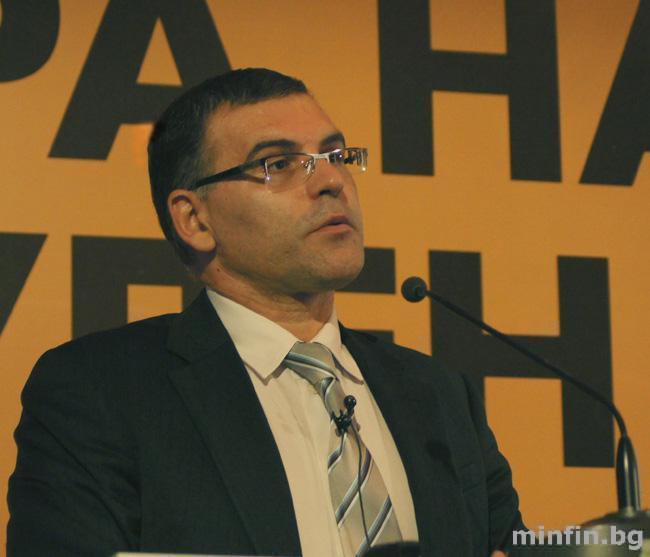SIMEON DJANKOV: NOTWITHSTANDING THE CRISIS WE MANAGED TO MAINTAIN THE LOW TAX BURDEN

14.11.2012
"The low tax burden, the stable fiscal policy and the lowered crime levels are the strengths of Bulgarian economy", Deputy Prime Minister and Minister of Finance Simeon Djankov stated during a discussion on the challenges facing Bulgaria in 2013. He added that Bulgaria had some of the lowest tax rates in the EU and it managed to maintain those levels despite the crisis. According to Djankov Bulgaria is spoken of as a fiscally stable state. This is highlighted both by international financial institution management and by foreign politicians. However, before the participants in the discussion he specified that crime levels in Bulgaria were lowered, e.g. abductions were no longer top subject for society. Another fact is that traffic accidents level has been halved compared to 2008.
Djankov commented that one of the risks for Bulgarian economy in 2013 was the growing disproportion between North and South Bulgaria. He pointed out that the main reason for the North to lag behind was that most of the large EU funded infrastructure projects were in the South - Trakia and Struma highways, etc. In the next programming period the aim would be to finance by priority projects in North Bulgaria, as well as to infrastructurally connect the two regions. According to the Finance Minister the judiciary and healthcare sectors were among the weaknesses.
The Deputy Prime Minister's expectations for 2013 are that some of the large infrastructure projects in the country would be finished - different lots of Struma, Trakia and other highways, Danube Bridge II, the road Ruse-Shumen, etc. He commented that given the relative stability in the EU it could be expected that interest rates would remain low. Djankov added that the long term interest rate of our benchmark bonds according to EC statistics was 3.39 %. In respect of that indicator we held the last but one place in Europe in 2009. Now we have left behind 12 countries.
The main concerns for the Bulgarian economy in 2013 are the US economy, the situation in Greece and the development disproportions between North and South Bulgaria, the Minister of Finance said in conclusion.